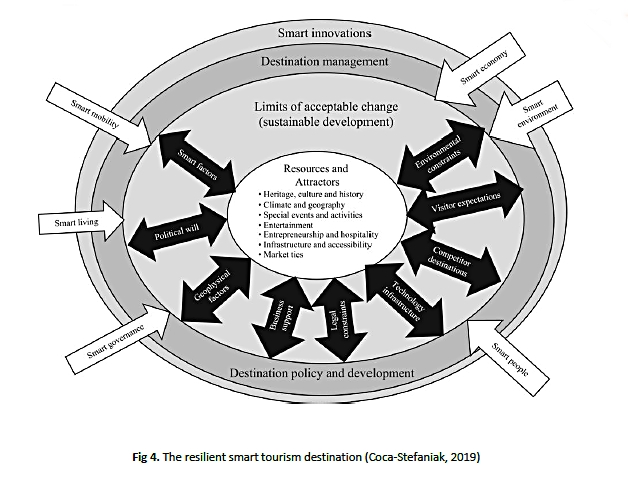Sustainable cultural tourism can be achieved through democratic participatory planning processes which are context specific. A key challenge for peripheral European regions lies in crafting well designed cultural tourism programmes which will meet the needs of the residents and tourists while preserving regions’ fragile cultural assets. Thus, it is important to frame cultural tourism within a larger socio-cultural, environmental and economic debate, ensuring a more equitable development.
In this context, a report has just been submitted by SmartCulTour partner Modul University Vienna (Austria) presenting a first review of the key cultural tourism concepts and trends which will help to identify a set of sustainability and resilience indicators. These indicators will be a useful tool for stakeholders so that they can plan, monitor and evaluate sustainable cultural tourism developments.
The report contains an updated definition of cultural tourism, a new definition of sustainable cultural tourism destination, a comprehensive review of literature on cultural tourism concepts, trends and current management challenges, and an outlook towards the future of cultural tourism in Europe. You can read the full Deliverable here: Deliverable D2.1


